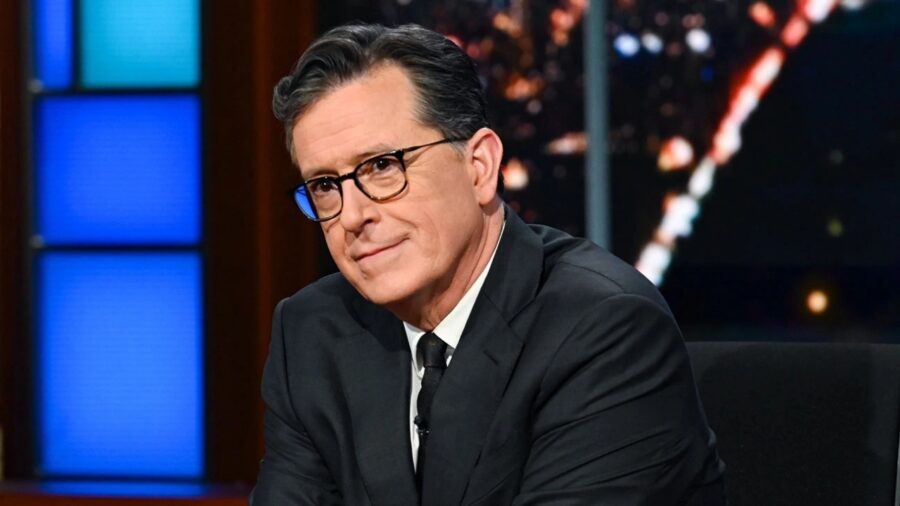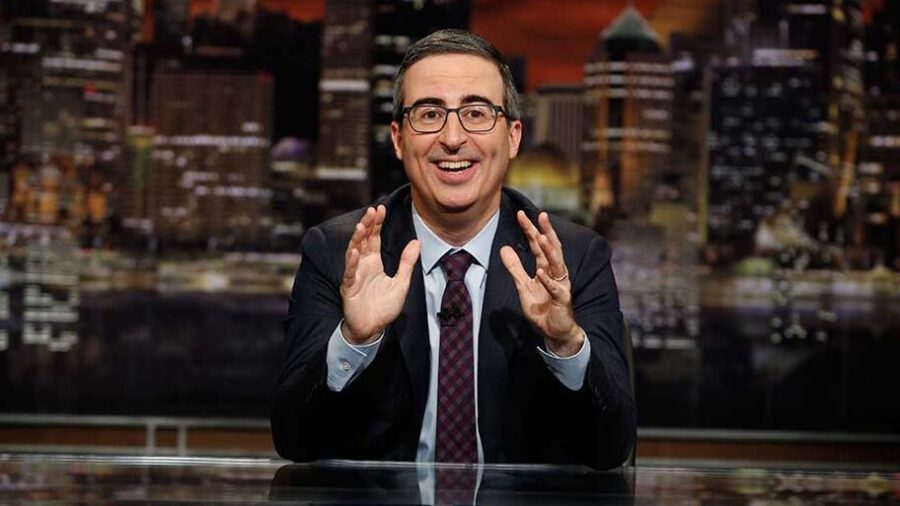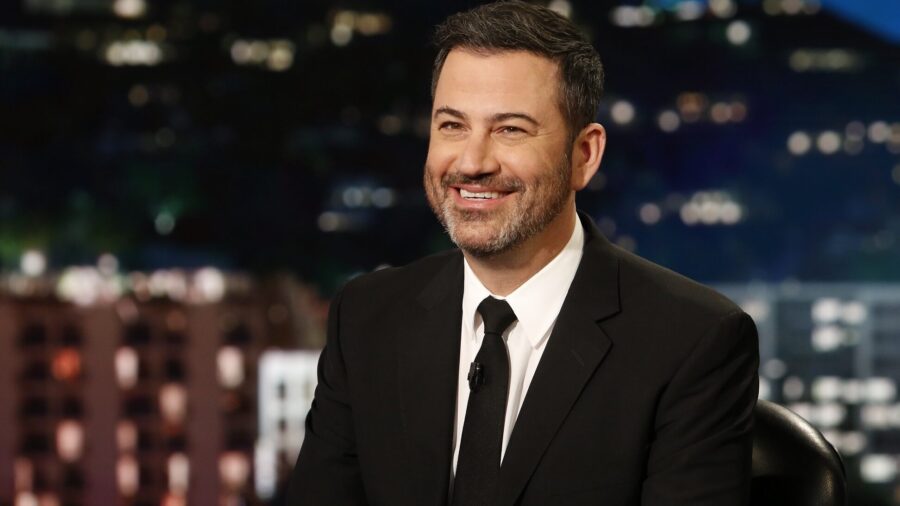Late-Night TV Heading For Oblivion If Writers Strike Fails
Could a complete, beloved section of TV just disappear forever? That's the dire warning being issued.

Late-night comedy writers risk a dire future if the Writers Guild of America (WGA) fails to negotiate a successful deal with the Alliance of Motion Picture and Television Producers (AMPTP) to end its eight-week-long strike. The warning comes from Greg Iwinski, a former writer for The Late Show with Stephen Colbert and Last Week Tonight with John Oliver.
When questioned about writers’ unwavering passion, visibility, and unity two months into the strike, Iwinski said, “When the alternative is oblivion, what else can you do but fight like hell?” Sure, comedians are prone to hyperbole, but oblivion is what late-night writers are facing without a victory in this contract,” he said via Deadline.
Iwinski’s message to WGA members on the 57th day of the strike was equally strong. “A key fight in this strike is over the future of Appendix A in an industry dominated by streamers. In television, Appendix A in the guild’s contract covers almost everything that isn’t a movie or an episodic TV show, including late-night, soap operas, quiz and variety shows, and all other non-dramatic shows,” he said.
“When the alternative is oblivion, what else can you do but fight like hell?”
Greg Iwinski
Iwinski noted that the current minimum pay is entirely subject to negotiation, and the residuals received for working on subscription streaming services are inadequate.
The response from the AMPTP regarding suggestions to broaden television terms to include new content platforms has been unsatisfactory to the WGA. They have only agreed to extend specific terms to include comedy-variety shows.

The AMPTP has also proposed a weekly minimum rate (with the option of hiring writers on a daily basis) that does not include several late-night shows due to budget constraints. Moreover, the deal proposed by the AMPTP would result in numerous Appendix A writers being unfairly compensated on the largest entertainment platforms globally.
If the current 13-week cycles are replaced by week-to-week or day-to-day contracts, it will create a lack of job security for writers, making it difficult for them to meet the requirements for renting apartments in the cities where these late-night shows are produced. Writers would struggle to cover their basic living expenses in a world without reasonable residuals for reusing their work.
“We are going to win because this is not just a strike. It is a moment. It is a movement. If you are a Millennial, you know that feeling deep inside your gut that a broken system has existed for too long.”
Greg Iwinski
Additionally, the AMPTP’s excessively high budget thresholds would exclude a significant number of series from receiving coverage, rendering the other terms irrelevant.
But Iwinski remains optimistic, saying, “We are going to win because this is not just a strike. It is a moment. It is a movement. If you are a Millennial, you know that feeling deep inside your gut that a broken system has existed for too long.”
“Fate has handed you the match to burn it down. That is our moment,” Iwinski added. Late-night shows impacted by the WGA strike, which began on May 1, include The Late Show with Stephen Colbert, Jimmy Kimmel Live!, The Tonight Show Starring Jimmy Fallon, Late Night with Seth Meyers, and The Daily Show. Saturday Night Live has also been impacted and has canceled its upcoming episodes.
What Late Shows Look Like Now And Why They Are The First To Go

Late-night shows are the first to go dark because they are written with extremely tight schedules to capture topical stories. These shows are technically allowed to remain on air according to WGA rules, but if they do, they’ll bear little resemblance to the shows fans know and love.
They’ll feature no monologues or prewritten sketches – just guest interviews and other unscripted content.
Several late-night talk show hosts have been vocal about supporting the WGA strike. Jimmy Kimmel Live! host Jimmy Kimmel and fellow late-night host Seth Meyers covered a week of pay for their non-writing staff during the strike. The Late Show with Stephen Colbert host Stephen Colbert addressed the strike on his show, thanking his writers for their hard work.
The WGA strike has also impacted other television shows and movies, with some being delayed or pushed back. Reality shows, entertainment news, sports, and daytime talk shows are not subject to the WGA agreement and remain unaffected by the strike.











